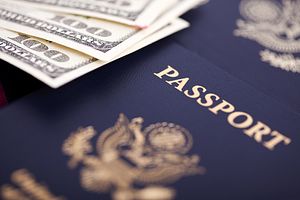China’s anti-corruption campaign is going global. The CCP has already begun a crackdown on “naked officials” (government employees whose children, spouses, and assets have been moved overseas), demanding that such officials either bring their families home or face demotions. Now, a report in China Daily focuses on corrupt officials who have fled to other countries — and the U.S. is apparently the most popular choice.
China Daily quotes Liao Jinrong, the director-general of the International Cooperation Bureau in the Ministry of Public Security, as saying that “the U.S. has become the top destination for Chinese fugitives fleeing the law.” Liao said that there are over 150 “economic fugitives” from China at large in the U.S., mostly corrupt officials. However, China Daily reports that China has only successfully extradited and prosecuted two fugitives in the past 10 years. One of those two, Yu Zhendong, had been the head of a local Bank of China branch, where he embezzled over $480 million before leaving for the United States. Yu was repatriated to China in 2004, becoming the first corrupt Chinese official extradited from the United States.
Yu’s repatriation didn’t spark a new trend of trans-Pacific judicial cooperation, however. Liao Jinrong attributes much of the problem to the lack of an extradition treaty, which requires China to go through “complex and lengthy legal procedures” to repatriate fugitives. Liao called an extradition treaty between China and the U.S. “essential” but said that little progress is being made.
A broader problem, (and indeed one of the major obstacles to an extradition treaty) is U.S. concern with the Chinese justice system — particularly its safeguards (or lack thereof) for defendant’s rights. After all, some of the most famous fugitives to come to the U.S. from China were leaders of the Tiananmen Square protests, who managed to escape from China in the aftermath of the military crackdown. They would have faced lengthy prison sentences had they been extradited to China. The U.S. even refused to repatriate Uyghur prisoners in Guantanamo Bay back to China, citing human rights concerns (somewhat ironic given Guantanamo’s own dismal record in that regard).
Corrupt officials aren’t exactly sympathetic, but U.S. judges will still be hesitant about extraditing these figures to China, where any legal defense they are allowed will be pro forma at best. In the case of Yu Zhendong, for example, Yu was tried and sentenced in the U.S. first. He was sent back to China to serve out his sentence only after the U.S. received “written terms of Yu’s care and handling in China.” In addition to questions about legal proceedings, there are also concerns that Chinese officials under CCP investigation (the dreaded shuanggui) are subjected to torture. Under such circumstances, an extradition treaty with China would bring the U.S. under serious fire from human rights advocates. China Daily, meanwhile, attributed such concerns to “U.S. judicial authorities misunderstand[ing] the Chinese judicial system and procedures.”
At present, an extradition treaty is off the table, but that doesn’t mean Beijing has given up on bringing the fugitives home. China wants to set up an annual high-level meeting with U.S. authorities, including the Department of Homeland Security, that will deal more specifically on the problem of trans-border crime. The meeting would focus on “intelligence case assistance, criminals’ repatriation, and the recovery of transferred assets,” an official from the International Cooperation Bureau told China Daily. Until then, China will have to focus on nabbing “tigers and flies” before they can hop on a trans-Pacific flight.

































